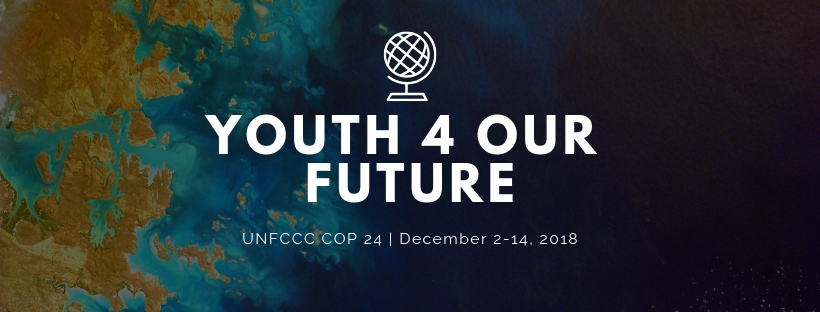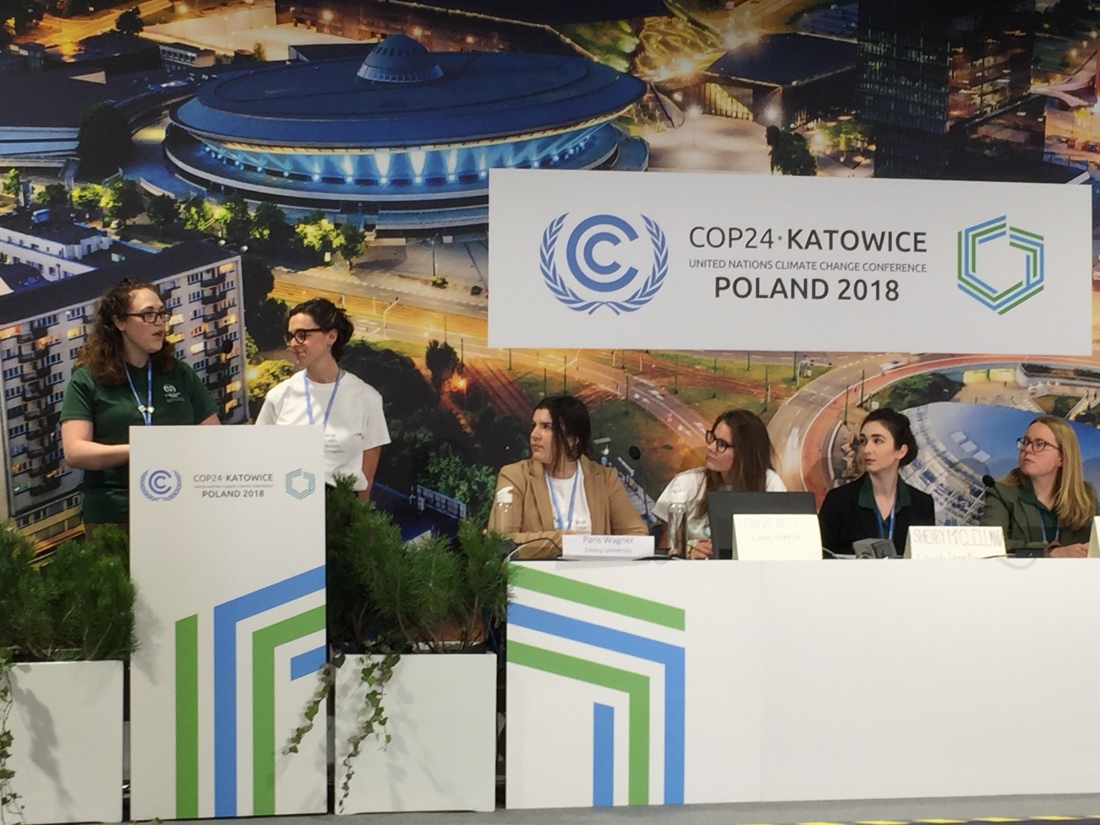COP Week Two- First Update
COP has been very busy for our students, so we apologize for not posting every day! Here are some photos from the past few days so we can keep you in the loop. Lots of updates to occur soon!
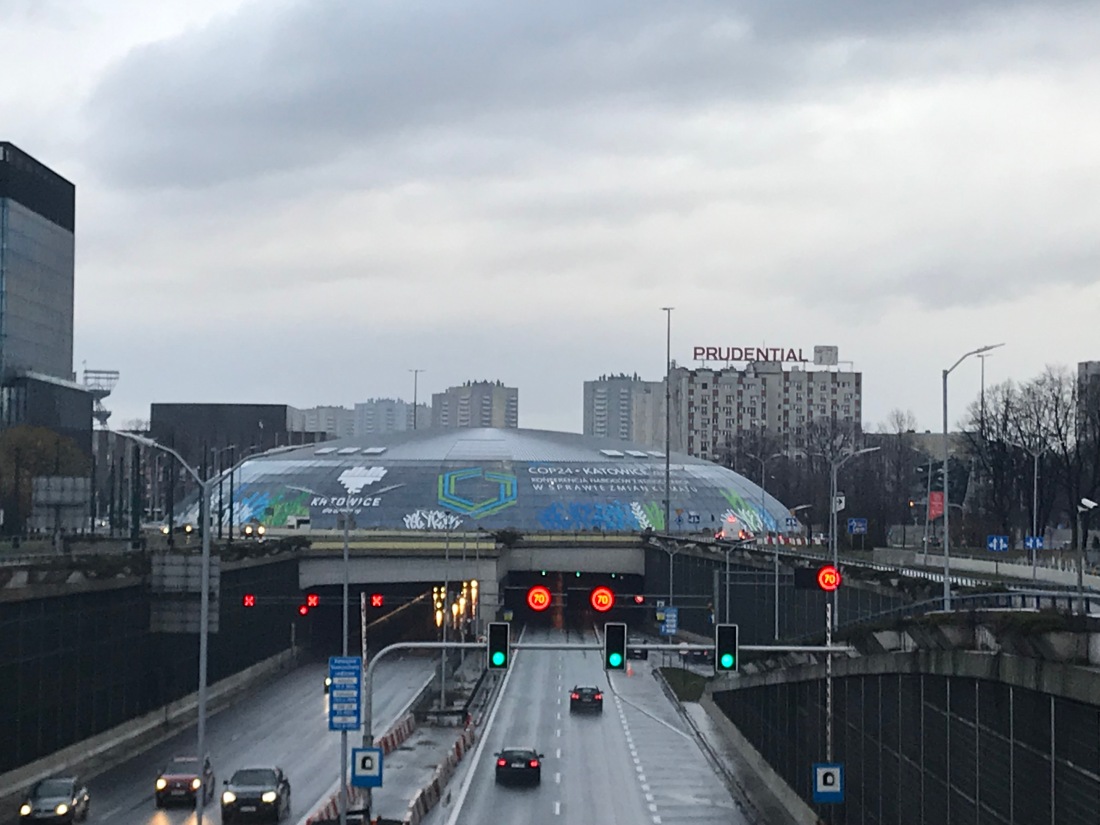
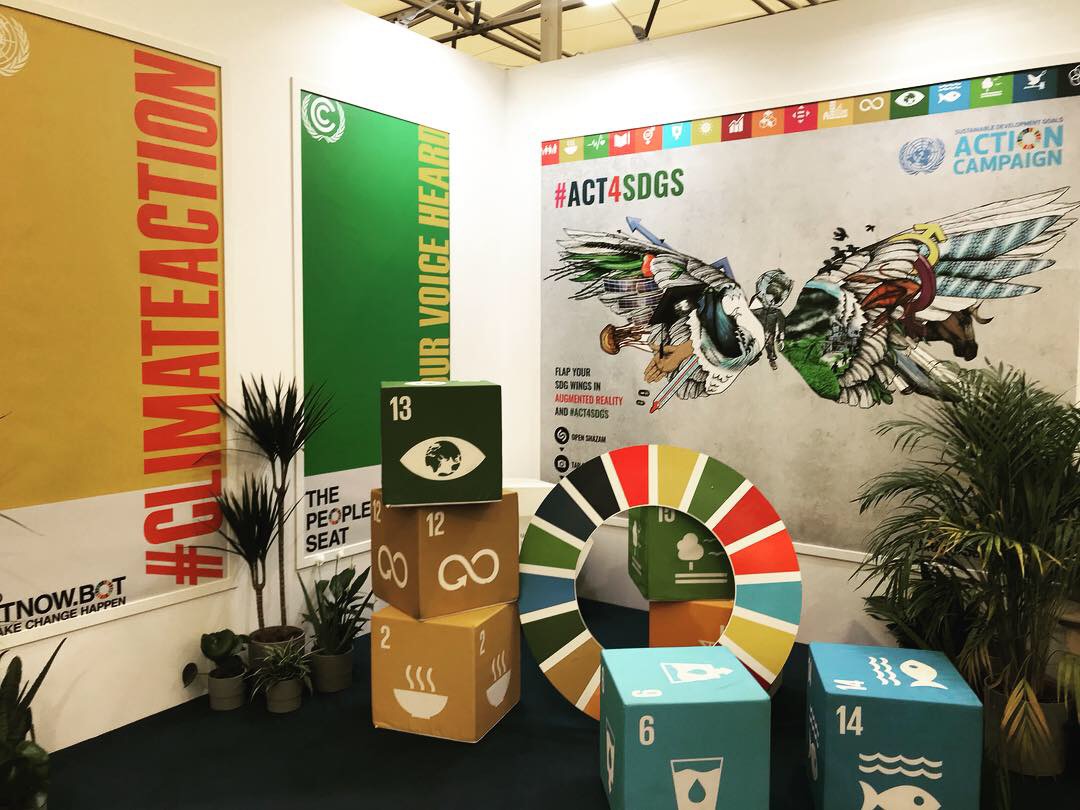
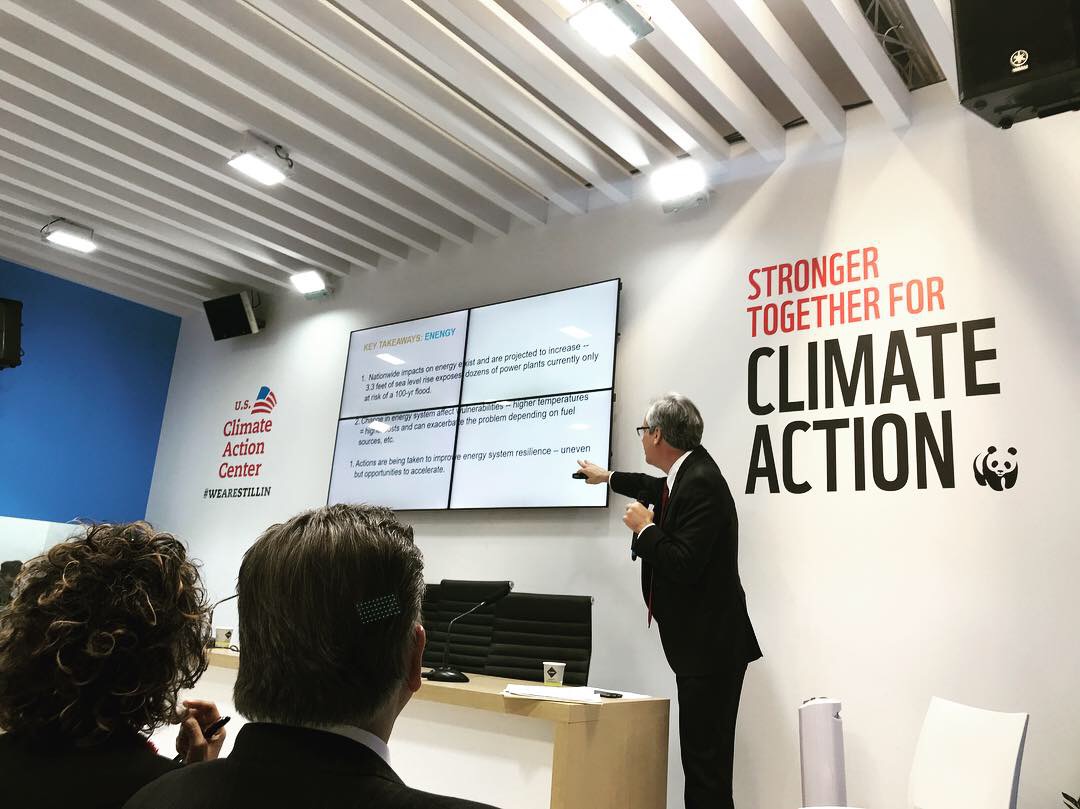
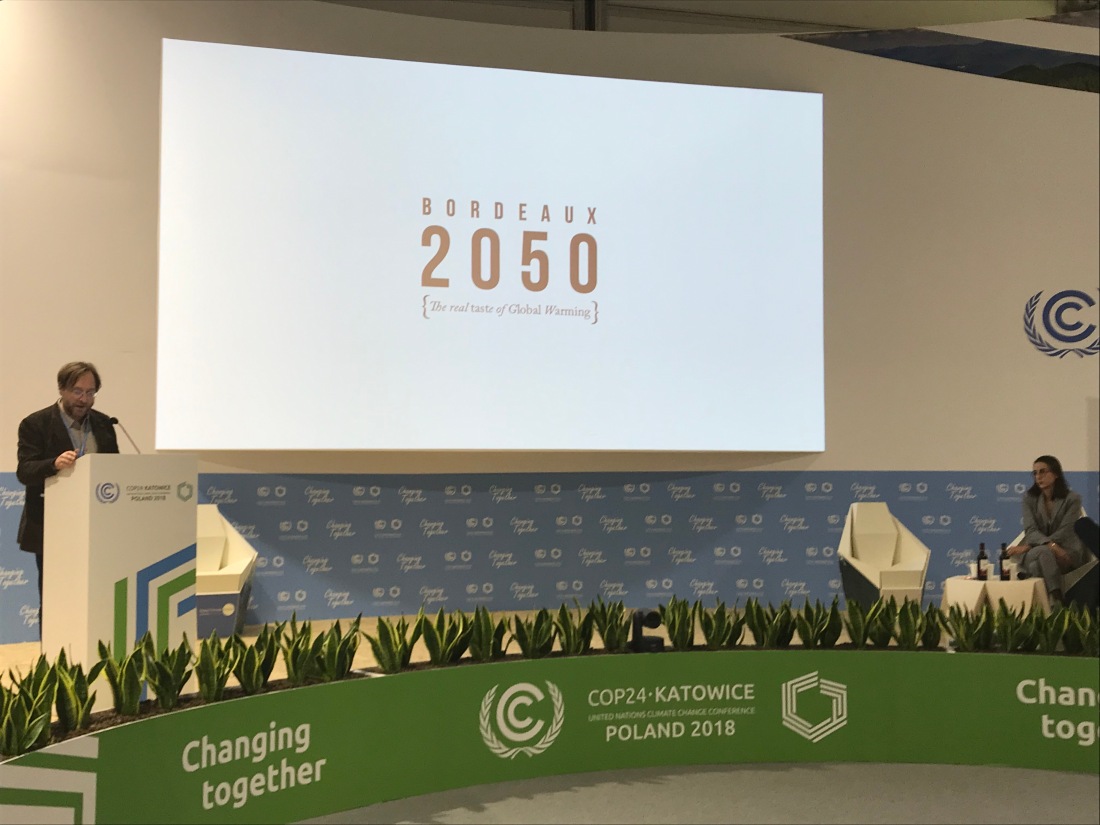
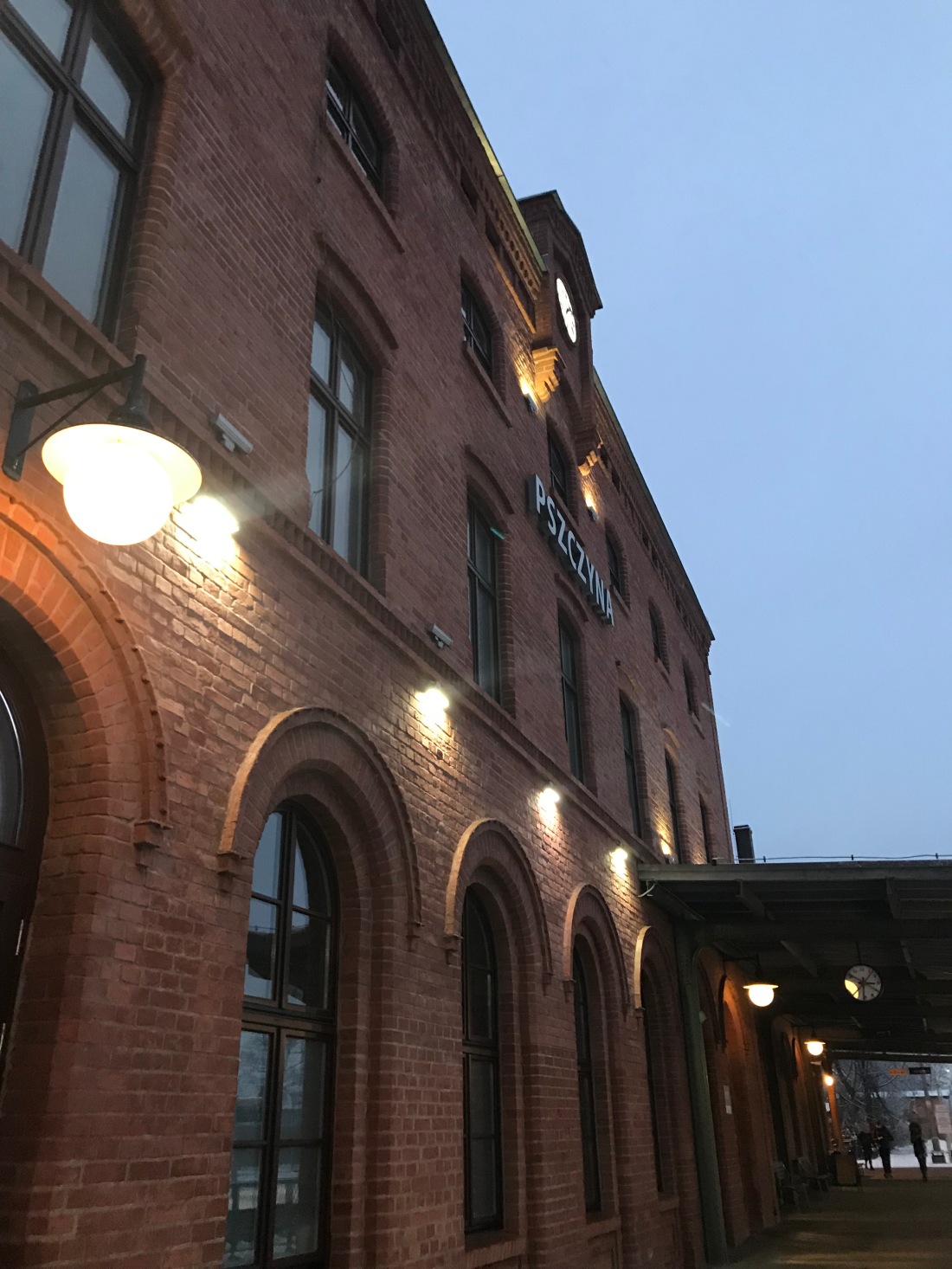
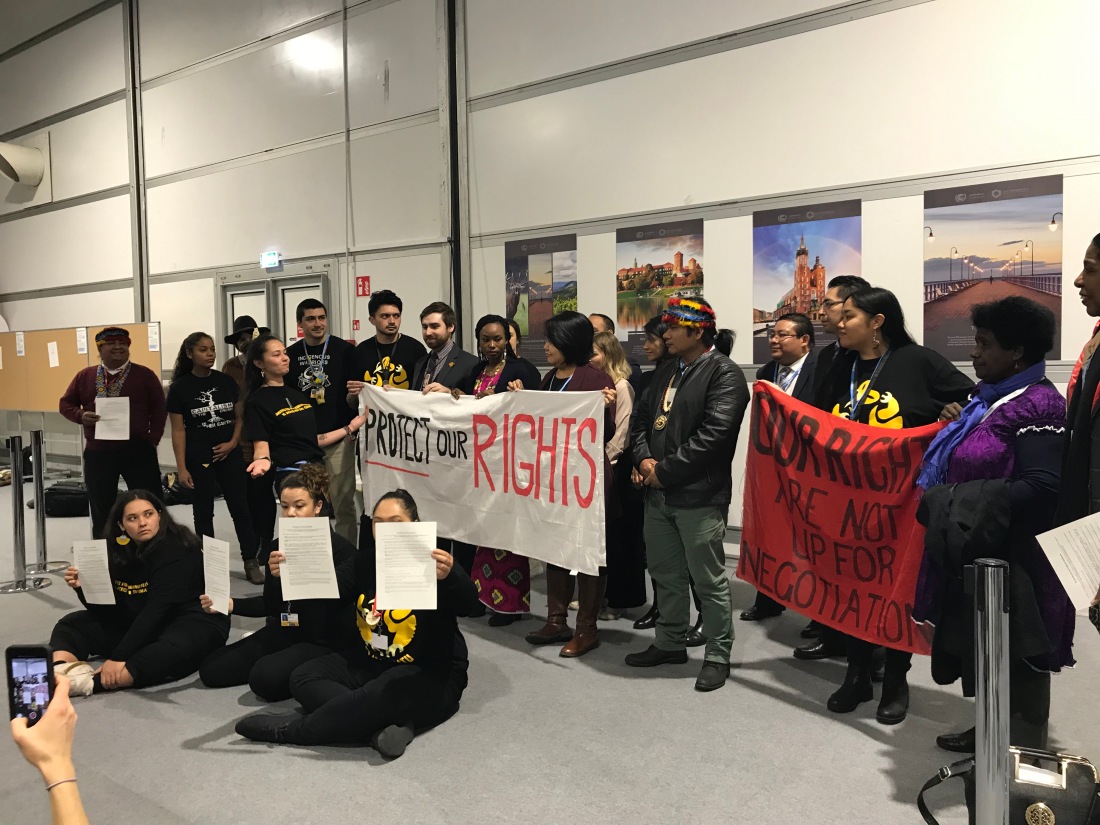
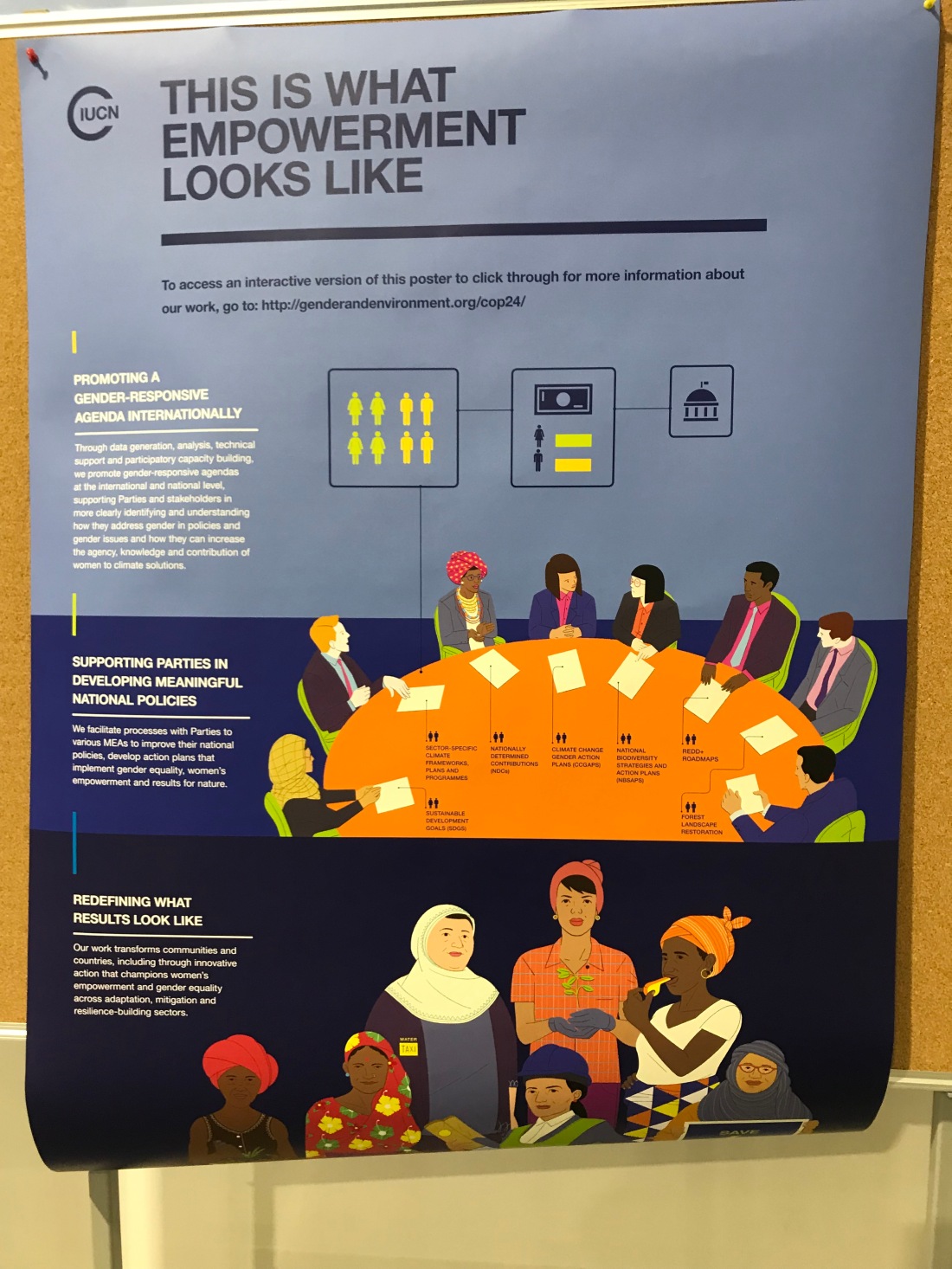
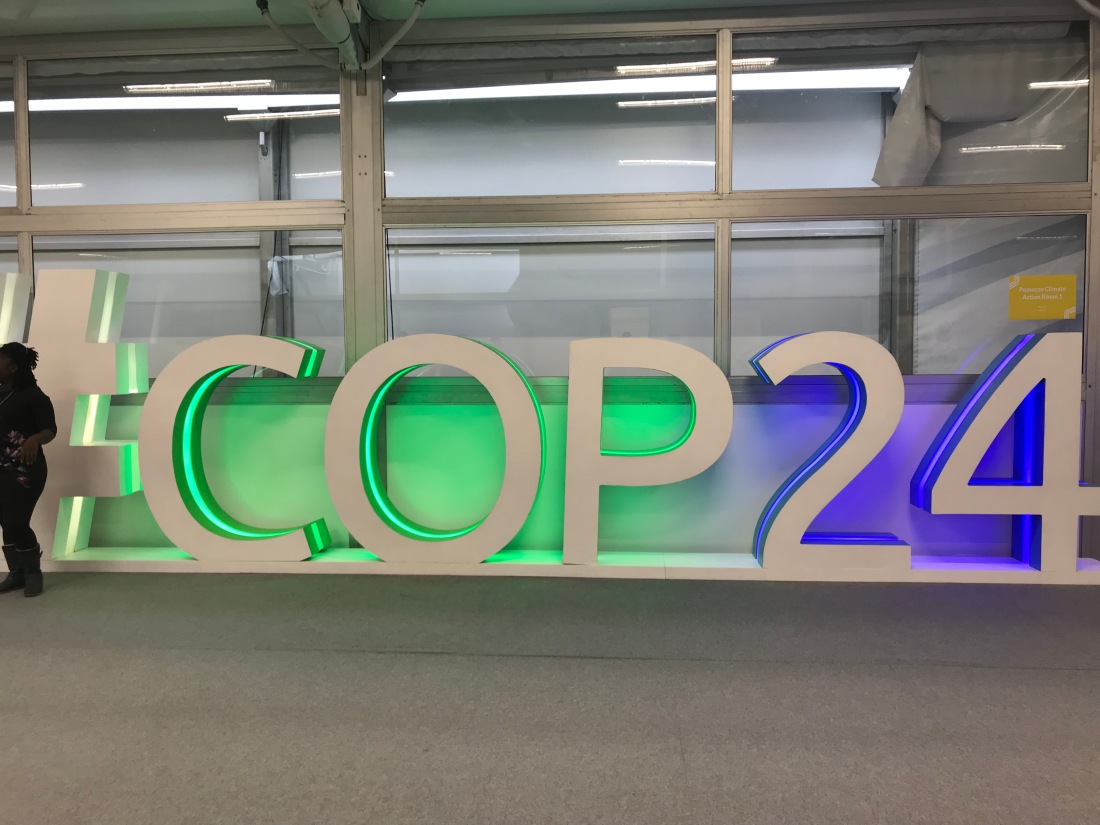
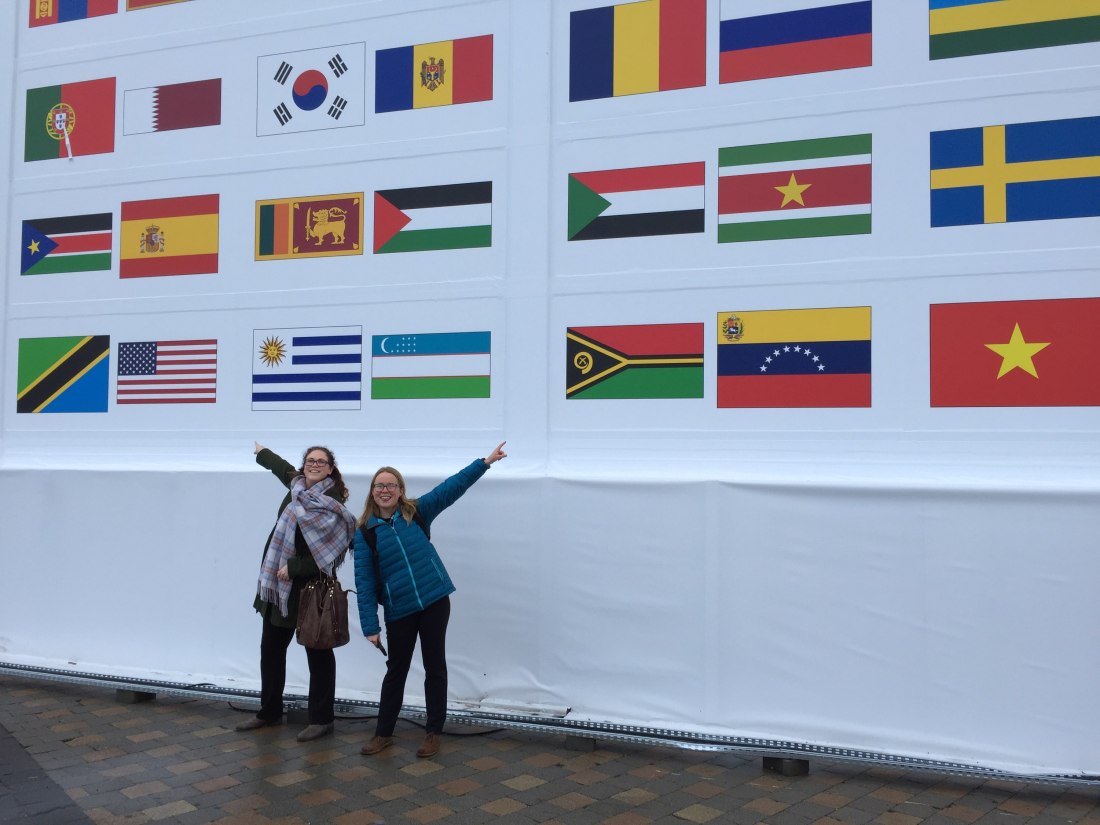
End of Week One- COP24
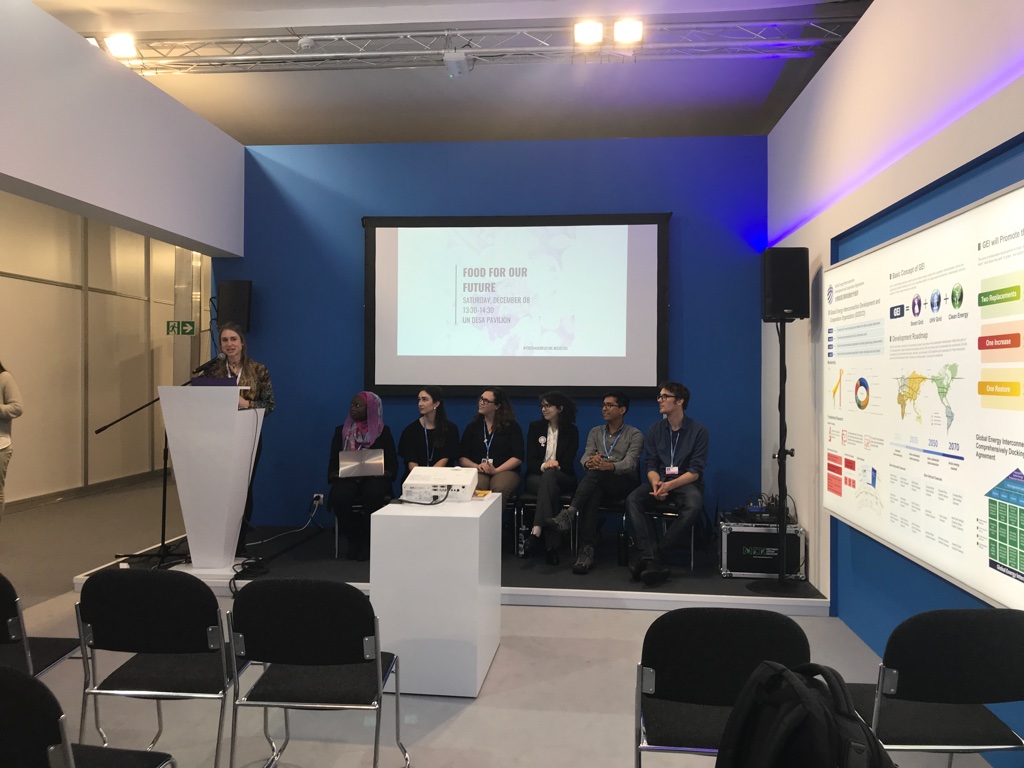 Students from Colorado State University, Clark University, and the Water Youth Network participate in a DESA-sponsored event on youth initiatives towards food, water, and climate action.
Students from Colorado State University, Clark University, and the Water Youth Network participate in a DESA-sponsored event on youth initiatives towards food, water, and climate action.
By Sarah Whipple, Colorado State University
I finally arrived at COP, and the first week of negotiations have come to an end. Tensions are heating up as countries have worked hard to make pivotal changes to the Paris Agreement and its implementation, mostly by encouraging countries to recognize the inclusion of the IPCC-1.5 Degree Warming Report.
Students from multiple groups– Colorado State, Clark University, the Water Youth Network, Emory University, and the Women’s Working Group– presented in two side events this past week, and they participated in a press conference with the public. All events were incredibly successful, stimulating thought-provoking questions and ideas from the audience, providing an amazing opportunity for young researchers and students to present their passions to a larger audience, and allowing students to advocate for the intersection of science and policy in relationship to UNFCCC policy.
This upcoming week, we’ll continue to participate in plenaries, side events, pavillion discussions, and press conferences. We’ll upload links to our presentations as soon as we have access to them so you can see how the students are getting involved at COP!
On Saturday, the SBSTA (Subsidiary Body for Scientific and Technological Advice) and the APA (Ad Hoc Working Group on the Paris Agreement) plenaries both closed. This means that negotiators hoped to resolve all their concerns with the current UNFCCC text, their facilitators and co-facilitators, etc. While the APA closed without any major concerns, the SBSTA final plenary was held-up by a single word outlined in their current text: either “noting” the IPCC 1.5 Report, or “welcoming” the Report.
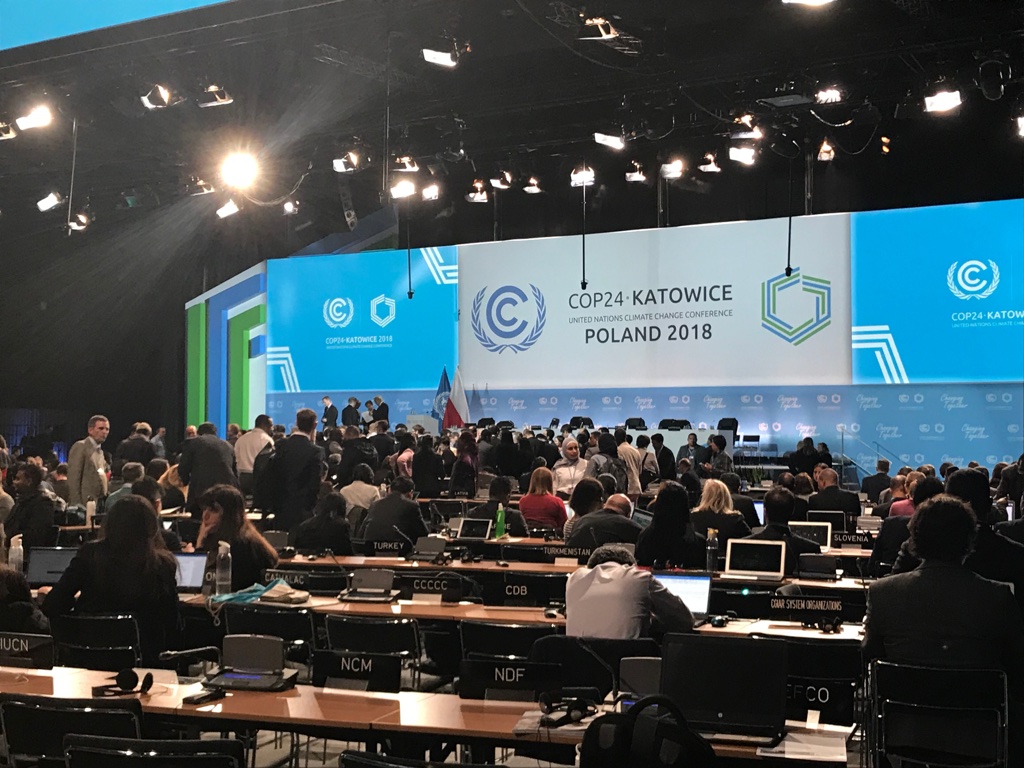 View from the floor of a plenary session at COP 24. At the front of the floor, key party negotiators are debating over the wording for “noting” or “welcoming” the IPCC Special 1.5-degree Warming Report. Many parties want the wording to be changed to “welcomed,” but a few countries are hesitant to make this switch.
View from the floor of a plenary session at COP 24. At the front of the floor, key party negotiators are debating over the wording for “noting” or “welcoming” the IPCC Special 1.5-degree Warming Report. Many parties want the wording to be changed to “welcomed,” but a few countries are hesitant to make this switch.
This might not seem like a big concern, but this one-word hold-up halted negotiations, leading to a major huddle of negotiators trying to work past the language (as seen in the picture above). Eventually, the SBSTA chair commenced the plenary, and there was no resolve to this issue. The chair suspended that article (article 16), which means that negotiators will continue to work on it this issue in the upcoming week, or it will be fully suspended until June 2019.
However, the SBSTA plenary was not a total flop– in fact, noteworthy articles successful passed, specifically in regard to the inclusion of local communities and indigenous groups with the UNFCCC organization. After this passed, representatives from the Indigenous Working Group presented a song to the plenary crowd that was incredibly moving to see. It was also surprising, and somewhat heartwarming, to see the United States formally acknowledge their approval of this declaration.
Negotiators have until Tuesday to finalize documents that they hope to resolve and push through the COP by the end of the week. From there, these documents will go to the ministries of representative countries who will make the final decisions.
We’ll continue to post updates on COP, including more photos, links to news articles, and more! Thanks for following our journey.
The Journey to COP 24 Begins!
The United Nations Framework Convention on Climate Change (UNFCCC Logo)
“There’s not one of the global goals that isn’t touched by climate change.” – Jonathan Pershing, U.S. Department of State Special Envoy for Climate Change
By Sarah Whipple, Ecology Graduate Student at Colorado State University
The recent publication of the U.S. National Climate Assessment and newly updated international climate report has generated tremendous amounts of press and rejuvenated public discourse on national and international climate policy. Scientists warn that action needs to be taken immediately to avoid the worst projected climate change impacts on societies and ecosystems around the globe. For many students, the opportunity to instigate– let alone, participate– in environmental policy is rare. However, the need for young people to advocate for their science is necessary given the urgency of addressing the present climate crisis. When Colorado State University opened up the opportunity for a group of students from the Graduate Degree Program in Ecology (GDPE) and the Masters Program in Greenhouse Gas Management (MGMA), to attend the United Nations Framework Convention on Climate Change 24th Conference of Parties (UNFCCC COP24), Dr. Gillian Bowser and professors from external universities– Clark and Emory University– decided to form a graduate student seminar class to organize for the important conference. Students participated in this crash course on UN international policy framework and strategized for their participation and leadership in the forthcoming COP.
After fourteen weeks of memorizing all of the UN’s different acronyms, discussing past and current environmental issues and their policies, and preparing for a student-led side event panel presentation, five students from CSU are heading to Katowice, Poland with Dr. Bowser and three other CSU-faculty delegates for the 24th UNFCCC. Their goal is to translate their knowledge and their passions for science and advocacy to others, and to energize present and future climate leaders.
What’s at stake during COP?
“COP21 saw the birth of the Agreement. In Poland [COP24], as I call it Paris 2.0, we will put together the pieces, directions and guidelines in order to make the framework really operate,” says Patricia Espinosa, UNFCCC Executive Secretary. By the end of this COP, countries are expected to begin striving towards their Nationally Determined Contributions (NDC). Countries that have signed on to the Paris Agreement all created their own NDCs and need to report on their contributions every five years through a global stocktake (as seen in article 14 of the original Agreement). However, with recent reports like the IPCC’s updated 1.5 degree Special Report coming out, people hope that negotiators come to COP with a greater motivation to finalize the rules originally stated with the Paris Agreement.
In light of the recent IPCC report, more ambitious strategies towards their NDCs are anticipated so that the 1.5 degree Celsius target can be met. Specifically, a large focus of the conferences will be on the future investments needed in order to protect the planet from hitting the “well below 2-degree Celsius warming” line. Organizers hope that strategies for expanded global climate action and international coordination for more efficient and effective economic and energy transformations will emerge out of Paris 2.0. The UNFCCC has prepared negotiators to finalize this legislation, and they even began COP two days early, to allow for all negotiations to occur. While these negotiations may seem hard to navigate, many believe that a successful implementation of Paris, through mitigation and adaptation, is still possible.
What will the students role be at the COP?
Each student will serve as a delegate and represent either a non-governmental organization, a university, or a working group during the conference. Each day, students will head to different panels, negotiations, and booths in order to learn more about the positions that their interests and delegations are following. CSU is also co-hosting a booth in the UN Civil Society Pavillon with the Research and Independent Non-Governmental Organizations. This is where students will discuss their research interests amongst constituents, encourage participants to fill out a research survey focused on climate action, present information on CSU’s various graduate programs, and more. Finally, some of the students will participate in side event panels throughout the COP. These will also highlight some of the research projects that CSU students work on, and will serve to demonstrate how research can enhance future policy making decisions and personal actions.
We will be writing some follow-up blog posts during and post-COP, so check back as we continue to keep you all updated on our progress as a student group. In addition, we’ll be tweeting through personal accounts and GDPE’s account. We also have an Instagram account (@youth4ourfuture). From all of us, we are incredibly thankful and grateful for CSU for granting us this opportunity, and we look forward to sharing the experience with you all soon.
